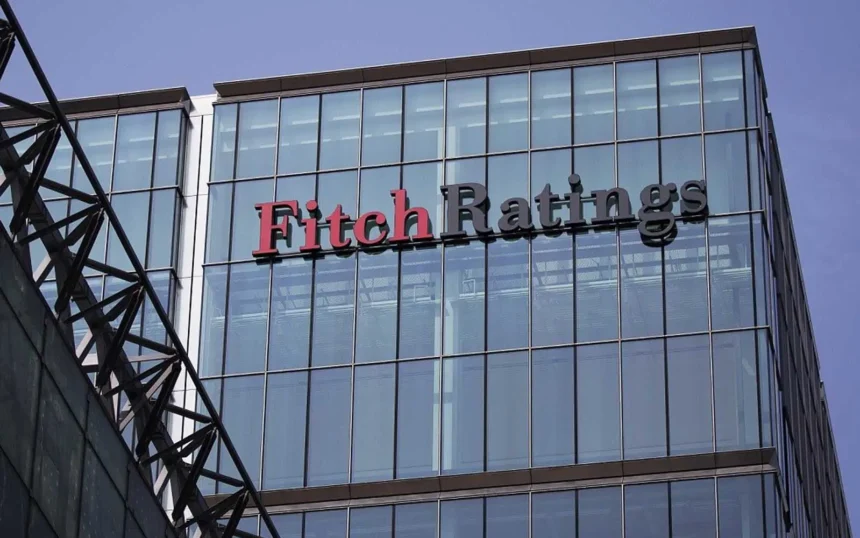FITCH Ratings has downgraded the long-term issuer default rating of the African Export-Import Bank (Afreximbank) to BBB-, placing it just one notch above junk status.
The rating agency also assigned a Negative Outlook, citing increasing credit risks and weakening risk management practices as the primary drivers of the downgrade.
According to Fitch, the downgrade reflects a deterioration in Afreximbank’s solvency position, with its internally assessed non-performing loan (NPL) ratio rising to 7.1 percent at end-2024, surpassing the 6 percent threshold that classifies as “high risk” under Fitch’s criteria.
By contrast, Afreximbank reported a significantly lower NPL ratio of 2.44 percent for Q1 2025, underscoring a divergence in definitions and disclosure standards. Fitch attributes this gap to Afreximbank’s application of flexible reporting under IFRS 9.
The Negative Outlook also reflects growing concerns that loans to sovereign borrowers—such as Ghana, Zambia, and Malawi—could be included in upcoming debt restructuring negotiations. While Afreximbank seeks to enforce its preferred creditor status to protect these loans, Fitch warned that inclusion in restructuring could pressure the bank’s policy importance rating and heighten strategic risks.
Fitch also revised Afreximbank’s risk management rating from “moderate” to “weak,” pointing to limited transparency and delayed reporting compared to peer multilateral development banks. This includes inconsistent treatment of distressed sovereign exposures, with Fitch now classifying loans to Ghana, South Sudan, and Zambia as non-performing.
Despite these issues, Afreximbank retains some financial strengths. The bank’s capitalisation remains solid, supported by a 19 percent equity-to-assets ratio and high internal capital generation. Its liquidity profile also remains strong, with 50 percent of treasury assets rated AA- or higher and a liquidity buffer of 95 percent—defined as liquid assets relative to short-term debt.
However, Fitch’s Standalone Credit Profile (SCP) for Afreximbank has been adjusted to reflect increased business and operational risks. The SCP is now based on the lower of the bank’s revised solvency rating (bbb+) and liquidity (a), but is penalised by the “high risk” business environment in which the bank operates. Many of the bank’s loan exposures are in countries with low credit ratings, weak income levels, and political instability.
Fitch also flagged governance concerns, noting that the downgrade in transparency has impacted its quality of governance assessment, now rated “high risk.” Should Afreximbank’s loans be subjected to sovereign debt restructurings, Fitch could further revise its currently “low risk” classification of the bank’s policy importance.
The bank’s short-term rating has also been downgraded from F2 to F3, aligning with Fitch’s rating scale for institutions with a long-term rating of BBB-.
Despite the downgrade, Fitch acknowledged the bank’s efforts to manage risks through strong collateralisation, covering 84 percent of its total loan portfolio. Additionally, Afreximbank benefits from diversified funding sources and ongoing capital injections, including a US$2.6 billion capital increase approved in 2021, of which US$2.1 billion has already been paid in.
Fitch expects the NPL ratio to decline below 6 percent by 2027, assuming loan performance improves and sovereign borrowers resume repayments. However, the road ahead remains uncertain as the bank navigates restructuring pressures and attempts to restore investor confidence.
READ ALSO: No Fitch-rated banks currently meet CBN’s capital requirements —Fitch Ratings






